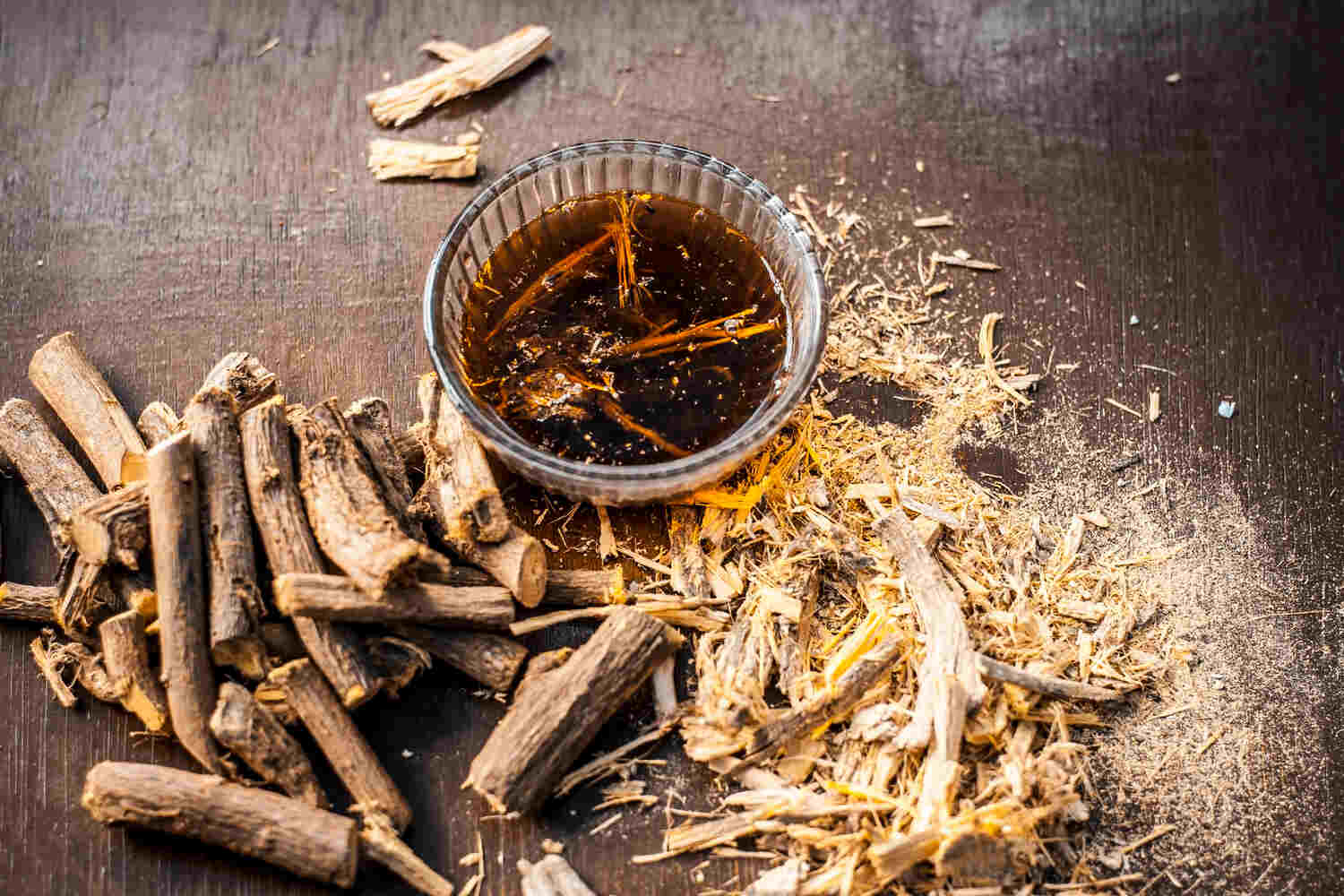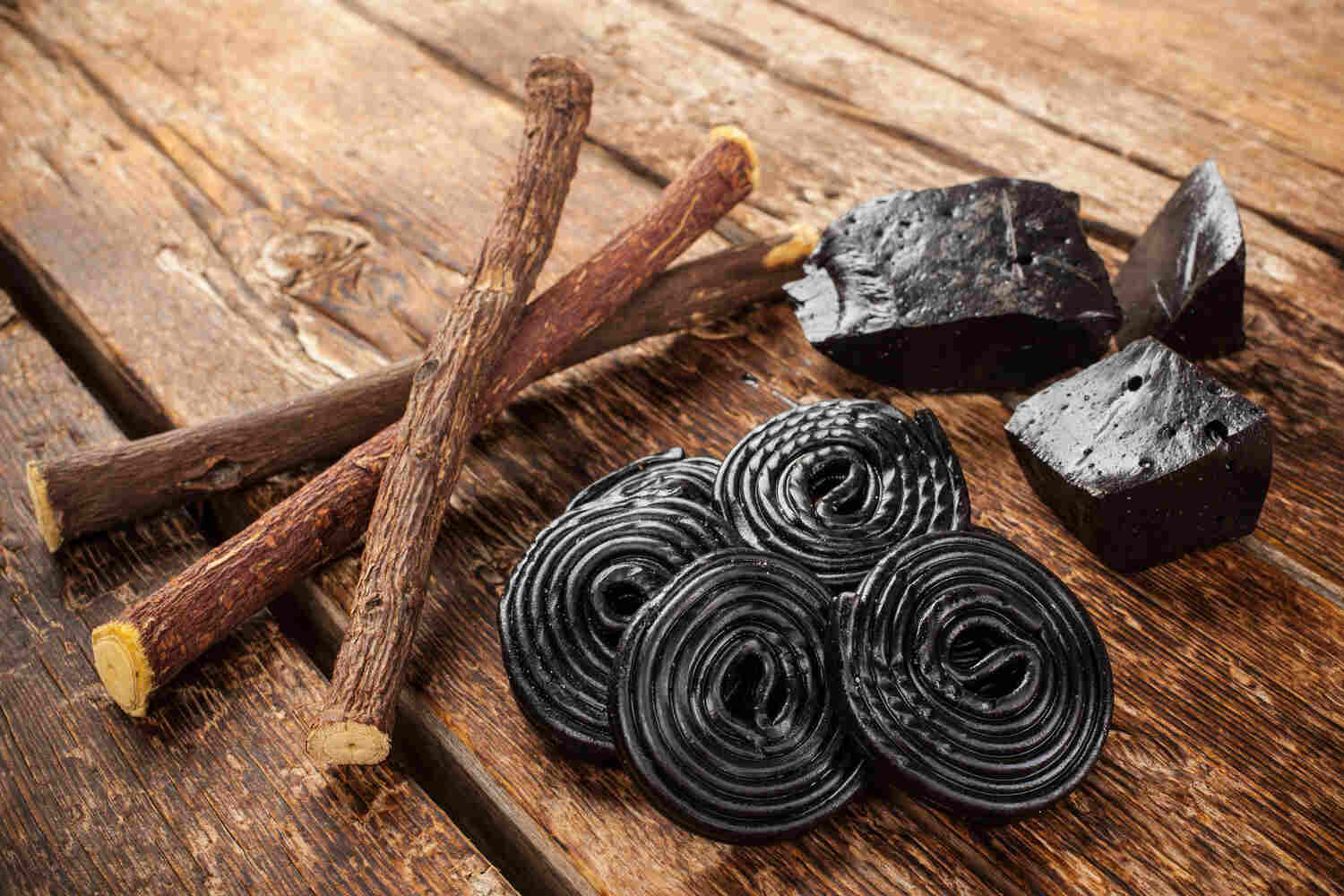 Pregnancy is a phase when the mother gets advice from all nooks and corners about herself and the coming baby. Suggestions about the food to consume, the right way to sit and stand, fitness tips, remedies to take in case of sickness or feeling low, etc. Apart from the list of foods that should be taken, there is a list of those foods that should not be taken, as well as those that are harmful to the health of the mother and the baby. Many herbs are advised to be avoided during pregnancy; Licorice is undoubtedly one of them. Being pregnant, you should know that ‘is licorice root safe for consumption during pregnancy?’
Pregnancy is a phase when the mother gets advice from all nooks and corners about herself and the coming baby. Suggestions about the food to consume, the right way to sit and stand, fitness tips, remedies to take in case of sickness or feeling low, etc. Apart from the list of foods that should be taken, there is a list of those foods that should not be taken, as well as those that are harmful to the health of the mother and the baby. Many herbs are advised to be avoided during pregnancy; Licorice is undoubtedly one of them. Being pregnant, you should know that ‘is licorice root safe for consumption during pregnancy?’
This article will explain all the scientific reasons behind the licorice restrictions during pregnancy. Just like mothers are suggested to refrain from caffeine, alcohol, nicotine, and smoking, they need to keep away from Licorice as well, as it comprises a component that is very dangerous for the pregnancy.
In This Article
- What Is A Licorice?
- Health Benefits Of Licorice During Pregnancy
- Is Licorice Root Safe During Pregnancy?
- Side Effects of licorice Consumption During Pregnancy
- Considerations Of Consuming Licorice While Pregnant
- Dosage And Forms Of Licorice Root
- FAQ’s
What Is A Licorice?
The root of the Glycyrrhiza Glabra plant is popularly known as Licorice. In India, it is commonly called Mulethi. In Tamilnadu, it is popularly known as “Adhimadhuram,” and in Kerala, it is called “Irattimadhuram.” Licorice is not only sweet and unique in flavor, but also brimming with several anti- tranquilizing well. The consumption of Licorice helps to calm down anxiety as well as tension by controlling the stress hormones. It is used to add a uniquely sweet flavor to the beverages, other foods as well as products made with tobacco.
Due to its medicinal properties, Licorice has a prominent place in both Eastern and Western medicine. It can even be used in the form of a gel to get rid of itchiness, to reduce the oily look in hair, to treat mouth ulcers, and also to get rid of plaque. Licorice is considered safe if not consumed in excess. Note that, more than 150 grams a day is counted as excess. Licorice, when taken in limited quantities, works ideal for curing health ailments like viral and fungal infections, heartaches, ulcers, asthma, cough, etc.
Health Benefits Of Licorice During Pregnancy
 Licorice, aka Yashtimadhu (Sanskrit), is well known for its broad antiviral, antimicrobial, anti-inflammatory, and hepatoprotective properties. It is, therefore, no doubt works as an excellent cure for cramps that one experiences during menstrual cycles, asthma, viral and fungal infections, liver issues, cough, body odor, yeast infections, HIV, ulcers, tiredness, melancholy, arthritis, Lyme disease, shedding of hair, athlete’s foot, etc [1]. Licorice is useful for curing some of the health ailments as follows:
Licorice, aka Yashtimadhu (Sanskrit), is well known for its broad antiviral, antimicrobial, anti-inflammatory, and hepatoprotective properties. It is, therefore, no doubt works as an excellent cure for cramps that one experiences during menstrual cycles, asthma, viral and fungal infections, liver issues, cough, body odor, yeast infections, HIV, ulcers, tiredness, melancholy, arthritis, Lyme disease, shedding of hair, athlete’s foot, etc [1]. Licorice is useful for curing some of the health ailments as follows:
Herpes
The antimicrobial property of this herb helps to bring down the severity of sores and aids viral suppression.
Improves Cardiovascular Health
The anti-oxidant property of licorice enhances blood capillary health. It prevents blood vessel damage and checks the growth of arterial plaque.
Helps To Cure Skin Ailments And Arthritis
Anti-inflammatory property of this herb makes it an excellent solution to various skin ailment and rheumatic and arthritis issues.
Health Of Eyes
The anti-inflammatory properties of Licorice helps to prevent the inflammatory conditions connected with eyes such as conjunctivitis (pink eyes).
Cosmetic Use
Licorice extract is a very well-known de-pigmentation agent. Therefore products with Licorice extract are widely used to get rid of the pigmented areas of the skin, including the under eyes.
Digestive Problems
Roots of Licorice are also used to deal with stomach and digestion issues like acidity, heartburn, acid reflux, and inflammation of the digestive system. Due to its mild laxative property, it plays an active role in enhancing the bowel movements, thereby helps to fight off constipation.
Helps To Combat Allergies
Licorice enhances immunity by enhancing the lymphocyte’s production and thereby helps to combat allergic reactions associated with immunity.
Cures Stomach Ulcers
Being a potent antioxidant and due to its excellent anti-inflammatory properties, Licorice is counted as an excellent natural medicinal aid in the treatment of ulcers of stomach and intestine and even mouth.
Is Licorice Root Safe During Pregnancy?
Pregnancy is a crucial phase where expectant mothers must take each step very carefully. The expectant mothers, as well as the nursing mothers, are strongly recommended by medical experts to avoid the consumption of Licorice to protect the baby from any prospective health concerns. Licorice tea is one of the options that come under the herbal teas, however not advisable to be consumed by the pregnant mother as it is not safe for the baby [2].
As per researches, Licorice is enriched with many benefits. Yet, its root has a compound that can lead to many health hazards like water retention during pregnancy, fluctuations in blood pressure, heart attack, fatigue, etc. Even if taken in lesser quantity, there are some side-effects like pain in the legs and the hands or even unresponsiveness.
Side Effects of licorice Consumption During Pregnancy
 Irrespective of it’s anti-oxidant, anti-inflammatory, anti-microbial, analgesic (pain-relieving) and expectorant properties of Licorice, its consumption during pregnancy is not a great idea. Licorice root has a compound that can cause many health issues and is not advisable for the mother and the baby as well. Even if taken in smaller quantity, it still shows negative effects, and some of the health issues associated with it are:
Irrespective of it’s anti-oxidant, anti-inflammatory, anti-microbial, analgesic (pain-relieving) and expectorant properties of Licorice, its consumption during pregnancy is not a great idea. Licorice root has a compound that can cause many health issues and is not advisable for the mother and the baby as well. Even if taken in smaller quantity, it still shows negative effects, and some of the health issues associated with it are:
- Excess dosage of Licorice consumed within pregnancy can even result in premature delivery or a miscarriage as well.
- Consumption of Licorice extract during the time of pregnancy can damage the placenta.
- It can affect the brain of the baby by lowering the intelligence quotient [3].
- The Licorice root can result in fetal growth and development issues if taken in more than recommended quantities.
- If a male fetus is imperiled to a higher quantity of estrogen, there are high chances of development of testicular complications resulting in infertility issues in the future.
- In case a female fetus is imperiled with high levels of estrogen, it can lead to reproductive organ complications.
- The consumption of Licorice is also associated with early puberty, as well.
- The pregnant lady, as well as the nursing mother, should refrain from consuming Licorice so that they can protect the baby against all sorts of probably health complications.
- The root of the Licorice comprises a compound that increases the levels of cortisol, which is also known as the stress hormone leading to issues in the growth and the development of the nervous system of the baby to be born.
Considerations Of Consuming Licorice While Pregnant
As per the University of Maryland Medical Centre, pregnant women should not be advised to take licorice. As all know, licorice root has multiple medicinal values.However, it contains glycyrrhizin that can cause health problems like headaches, hypertension, fatigue, oedema, and cardiac arrest [4]. Consumption of licorice root in high quantities can cause maternal health complications and disrupt fetal growth and development. A smaller amount of consumption can lead to muscle pain, fatigue, and numbness in limbs.
Dosage And Forms Of Licorice Root
 Licorice root extract can be available in several forms that include capsules, powder, teas, gels, and tinctures. In addition, dry and fresh roots are also available in the market. At present, there is no standard dosage of recommendation for licorice. However, those who are getting extra doses of licorice are taking more than this amount. It is difficult to recognise, how much glycyrrhizin is consumed as it was not clearly mentioned on products. If you are still interested in licorice then you can take deglycyrrhizinated licorice products. It reduces the risk of harm related to licorice.
Licorice root extract can be available in several forms that include capsules, powder, teas, gels, and tinctures. In addition, dry and fresh roots are also available in the market. At present, there is no standard dosage of recommendation for licorice. However, those who are getting extra doses of licorice are taking more than this amount. It is difficult to recognise, how much glycyrrhizin is consumed as it was not clearly mentioned on products. If you are still interested in licorice then you can take deglycyrrhizinated licorice products. It reduces the risk of harm related to licorice.
The available products of licorice are enlisted below:
- Licorice capsules
- Licorice candy
- Licorice powder
- Licorice tea
- Licorice supplements
Licorice root has antimicrobial, anti-depressant, and anti-allergic properties. However, licorice is not safe for pregnant women. It can raise your medical complications during pregnancy. Thus, it is always recommended to take precautions early rather than repent later. The baby’s growth and development during the pregnancy phase are very critical. Hence, pregnant women should always be cautious of what they consume and stay away from harmful foods. If you opt for any natural remedies, always consult the doctor before the same.
FAQ’s
1.Can Pregnant Ladies Eat Licorice Root?
No, licorice is not recommended for pregnant women. It can cause multiple complications in your pregnancy as it contains glycyrrhizin. It may affect the brain development of the foetus. Thus, try to avoid licorice during pregnancy or reduce the intake.
2. Who Cannot Take Licorice Root?
Pregnant and lactating mothers are advised to avoid licorice intake. Otherwise, it has a positive health impact on humans. However, it can interfere with some medications, which include hypertension, blood thinners, diuretics, and contraceptive medicines. So, if you are on such medication, you should avoid licorice.
3. What Herbs Should Be Avoided During Pregnancy?
Some herbs that may be harmful during pregnancy are saw palmetto, goldenseal, ephedra, black cohosh, blue cohosh, and Roamman Chamomile.
References –
- Glycyrrhiza glabra (Licorice): A Comprehensive Review on Its Phytochemistry, Biological Activities, Clinical Evidence and Toxicology
https://www.ncbi.nlm.nih.gov/pmc/articles/PMC8703329/# - Use of alternative medicine, ginger and licorice among Danish pregnant women – a prospective cohort study
https://www.ncbi.nlm.nih.gov/pmc/articles/PMC6320632/# - New Study Suggests Women Should Avoid Eating Licorice during Pregnancy
https://www.rileychildrens.org/connections/new-study-suggests-women-should-avoid-eating-licorice-during-pregnancy# - Licorice
https://www.mountsinai.org/health-library/herb/licorice#

